Dementia is a loss of memory and orientation. The increase in life expectancy also increases the risk of developing dementia. There are different forms of dementia, the most common being Alzheimer's dementia. About 20 percent of all dementia sufferers have one vascular dementia. Vascular means that the cause of this dementia is a circulatory disorder in the brain.
What is vascular dementia?

Dementia is the name given to a decline in the mind. Vascular is a medical name for all diseases that affect the blood vessels.
Vascular dementia is characterized by a steady decrease in the mental, and later also the motor skills of a person.
As a result, the ability to remember and the processing of recorded stimuli, such as viewing and evaluating an image, are restricted or eliminated.
causes
The cause of the vascular dementia is a decrease in blood flow to the brain.The greatest risk factor for developing vascular dementia is age. The older the person affected, the higher the risk of developing vascular dementia.
Another factor that favors the development is arteriosclerosis (calcification and hardening of the blood vessels) in the brain. The main causes of arteriosclerosis are poorly controlled diabetes, disorders in lipid metabolism and nicotine.
Obesity is also a risk factor for the development of arteriosclerosis. Small or large cerebral infarctions cause brain tissue to die and its function is restricted or impaired. The severity of the disorder depends on the location of the damage caused by the cerebral infarction.
Symptoms, ailments & signs
Vascular dementia does not occur suddenly. Overall, the symptoms increase gradually. It happens that a patient remains in one state for months and years and then apparently an improvement occurs. This brief up is then followed by an abrupt down. Signs of vascular dementia occur in a combination.
Patients appear confused to those who are not. They can only articulate themselves indistinctly and look for terms with which they can express simple facts. They are also finding it increasingly difficult to cope with everyday life. They can no longer operate technical devices such as a television. You are unable to decide for or against anything.
Choosing lunch options, for example, can overwhelm you. The sense of direction is also disturbed. At times, people with vascular dementia no longer know where they are. The complaints described have a direct impact on the personality. As a consequence, anger and aggression arise in those affected.
Sudden inner restlessness and constant mood swings are part of everyday life. They no longer understand their environment. The damage in the brain area sometimes also causes movement disorders to set in. Those affected walk insecurely and easily fall. Incontinence comes up. Neurological failures such as problems with vision arise.
Diagnosis & course
The diagnosis for a vascular dementia can only be provided by a doctor. A detailed anamnesis (patient survey) is required for this. Questioning relatives is also important for making a diagnosis. The main criteria include a memory disorder, circulatory disorder and high blood pressure.
A reliable diagnosis is possible with magnetic resonance computed tomography (MRT), since the damaged brain structures can be clearly displayed here. Before a diagnosis of vascular dementia is made, it is important to rule out other similar diseases (Alzheimer's dementia or Parkinson's disease).
The course of vascular dementia is characterized by a decline in short-term memory. In the further course the memory also decreases significantly. Later memories from long-term memory as well as motor, language and social skills are no longer possible. Typical of vascular dementia is the early appearance of gait disorders and coordination disorders. The character of the patient only changes in the later course of the disease.
At this point in time, there are also impaired perception and disorientation. Sometimes the sick have epileptic seizures. Behavior changes. Patients become apathetic, have eating disorders, sleep disorders, and anxiety. Hallucinations and depression are also common.
Complications
If vascular dementia is not recognized immediately, the condition of the person with dementia deteriorates noticeably: self-neglect occurs, which affects the household, personal hygiene and diet. Orientation towards time and place is also increasingly disappearing, which can lead to serious accidents if the person concerned moves freely without being accompanied.
The day-and-night rhythm is unbalanced and there is a considerable lack of sleep. In general, the phases in which the demented person sleeps or is awake are no longer tied to the time of day. A deterioration in memory occurs and the memory contents are replaced by delusional reports of experiences that have an unsuitable effect on the environment.
If there is no treatment, signs of dizziness also increase and the risk of suicide increases for those affected. In the later stages, dementia no longer even remember familiar people and neurological deficits occur. Food intake and excretion are permanently disturbed, which has a serious effect on the physical state of health.
Urinary tract diseases, swallowing disorders and bed restraint also play a role. If the affected person is treated, aspiration often occurs while feeding. Here, the smallest parts of food get into the lungs and damage them. The tissue is damaged and even pneumonia is not uncommon. If vomit is aspirated, the bronchial mucosa in particular is severely affected.
When should you go to the doctor?
If the person concerned or close relatives notice that their memory activity has been impaired for a longer period of time, the complaints should be clarified. Sleep disorders, anxiety and changes in personality are seen as warning signals in the medical field. To clarify the cause, a doctor's visit is necessary so that various tests can be carried out. Disorders of orientation, a loss of factual knowledge in the personal sphere and changes in attention should be discussed with a doctor. Any abnormalities in eating behavior, hallucinations or special behavior should also be clarified.
An epileptic seizure disorder must always be examined more closely by a doctor after each seizure suffered. High blood pressure, loss of zest for life and withdrawal from social life are considered worrying. If the willingness to conflict increases, if appointments are forgotten or if the person concerned objectively reproduces false memories, a doctor must be consulted. Unsteady gait, dizziness, coordination disorders and speech abnormalities are further complaints that require research into the cause.
Depressive or aggressive states, indifference and apathy also need to be investigated further. A doctor's visit is necessary in the event of general functional disorders, problems with the act of swallowing and changes in breathing. If the general risk of accidents increases and the usual personal hygiene of the person concerned disappears, members of the social environment should point out the need to see a doctor.
Treatment & Therapy

Furthermore, antihypertensive agents should be prescribed carefully to protect the blood vessels in the brain. A slow adjustment of the dosage is necessary here, as otherwise the blood pressure would be lowered too quickly and the result would be a reduced blood supply to the brain. The blood sugar must be optimally adjusted. In the later stage, depending on the findings and the patient's condition, psychotropic drugs such as antidepressants and [[neuroleptics6] are required.
In order to maintain the patient's mobility for a long time and to improve coordination, physiotherapy is important. Here it is possible to use certain techniques to compensate for the disorders caused by vascular dementia. Furthermore, a psychotherapeutic treatment of the person concerned is recommended in order to promote independence, orientation and personal responsibility.
You can find your medication here
➔ Medicines against memory disorders and forgetfulnessprevention
The prophylaxis of vascular dementia consists in a healthy lifestyle, the main goal of which is to avoid vascular damaging influences. This includes an optimal setting of blood sugar, a balanced low-fat diet, sufficient exercise and avoiding nicotine. Regular blood tests allow the doctor to identify risk factors for vascular dementia at an early stage and to combat them with dietary or medicinal measures. Furthermore, a normal weight should be aimed for. Various studies have proven the vascular protective effect of red wine in small quantities.
Aftercare
In the follow-up care for vascular dementia, the patient's underlying disease must be taken into account. These are examined at regular intervals. So if blood pressure, diabetes mellitus, cardiac arrhythmias or excessively high blood lipids are found, these are treated as part of the therapy. During follow-up care, the course of the treated underlying disease in patients with vascular dementia is regularly examined.
In addition, the doctor will work to ensure that the patient lives healthy and changes unhealthy behavior: lose excess weight, move more, quit smoking. If these risk factors are identified and corrected in good time during follow-up care, the course of vascular dementia can be slowed down. The brain disorders then no longer progress rapidly.
In pure vascular dementia, brain cells have actually died. Rehabilitative aftercare measures can also be helpful here. This makes it possible for healthy nerve cells to take over the tasks of the dead nerve cells. Occupational therapy, speech therapy and physiotherapy are used as part of follow-up care.
Finally, the scheduled long-term drug administration is monitored through follow-up examinations, the effectiveness is diagnosed and the side effects are assessed. For example, the use of blood-thinning medication should be accompanied during aftercare.
You can do that yourself
People who suffer from vascular dementia need support in everyday life. It is the responsibility of the relatives to look after the sick person and to give them attention and care.
First of all, it is important to obtain the most important information about the disease. Literature on the topic and the exchange with other affected persons are essential to understand the suffering. People with dementia need persistence and habit. The daily routine must be clearly regulated and major deviations should be avoided at all costs. At the same time, the patient's independence must be encouraged. For example, many patients are still able to cook or care for themselves. Relatives should also plan sufficient rest periods for themselves. The outpatient care service takes on important tasks and ensures the medical care of the patient.
The patient himself can contribute to a harmonious coexistence by also informing himself about the disease and supporting the treatment through sport, a healthy diet and cognitive training. For example, brain jogging or simple board games, which stimulate brain activity and counteract the progression of vascular dementia, have proven effective.

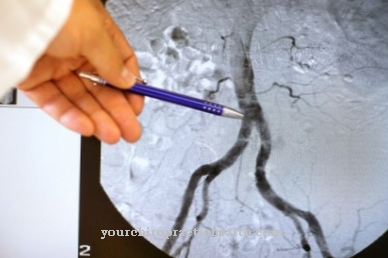

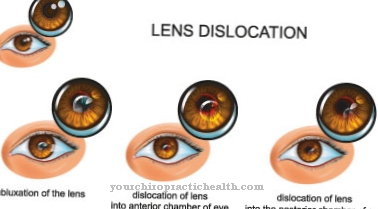
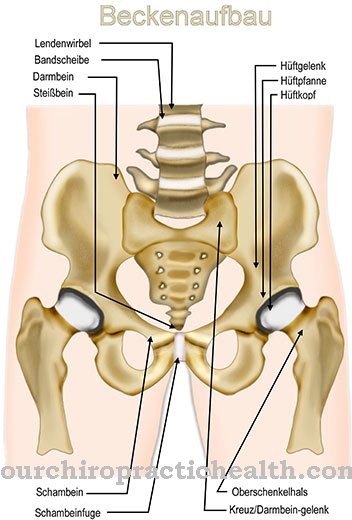
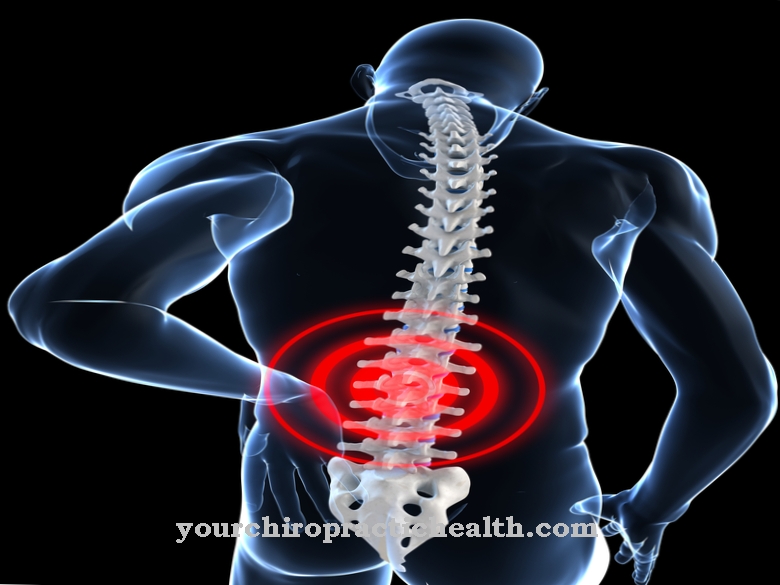
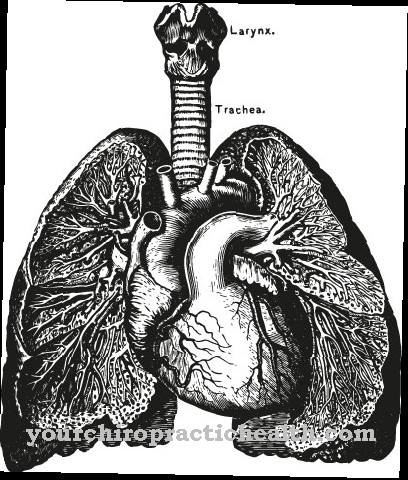

















.jpg)



